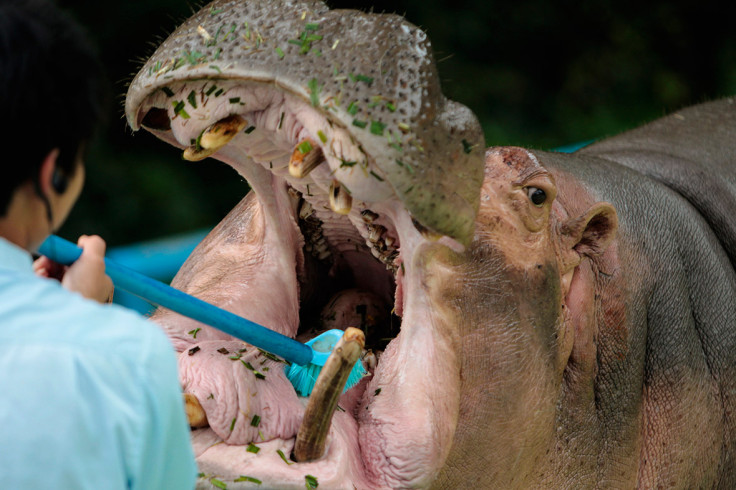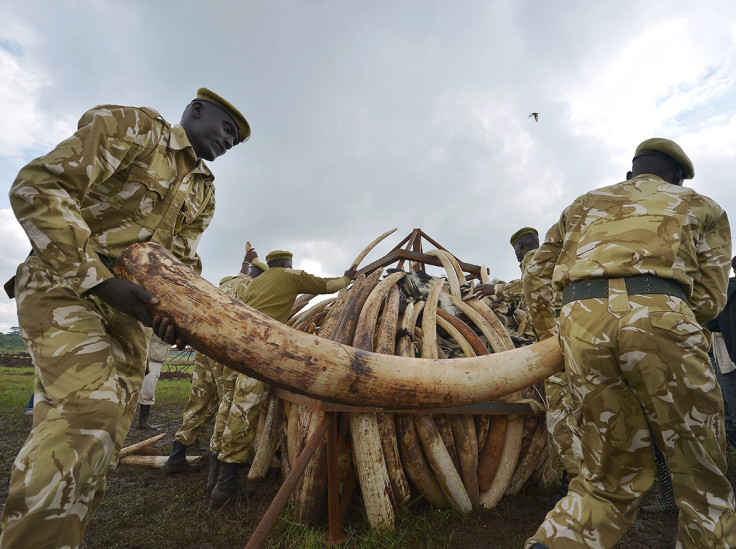Tanzania auctions off 3.5 tonnes of teeth from vulnerable hippos
Hippo ivory substitutes for elephant ivory and may grow more popular on black market.

The Tanzania Wildlife Authority (TWA) has auctioned off 3.5 tonnes of hippo teeth.
Hunting company Ontour Tanzania bought 12,467 pieces for about $13,600 (£9,600). Some teeth had been carved and stylised into small trinkets.
James Wakibara, head of the TWA, said that the teeth belonged to hippos that had died from natural causes or from encounters with humans. The proceeds from the auction would be donated to conservation efforts, he added.
While the auction was legal, conservationists worry that it could encourage further illegal poaching of a species that is already vulnerable, reports National Geographic.
Hippopotamus ivory has become a substitute for elephant ivory since trade in that was declared illegal worldwide in 1990. The trade in hippo ivory is regulated by the Convention of International Trade in Endangered species (CITES) but some bans have been applied locally such as in Uganda since 2014.
Experts are worried that the focus on the fight against elephant poachers has distracted conservationists as poachers become increasingly interested in hippo ivory, a trade that is subject to looser regulations.
But Wakibara dismissed such concerns. "There is no reason to worry that this trophy auctioning will be a precursor for illegal exports," he said.
According to some observers, legal sales of ivory such as the one in Tanzania could possibly slow illegal trade on the black market. In 2008, the Economist argued in an editorial that the legal sale could depress the price of ivory on the market and "reduce the incentive to poach".
However, a 2008 legal auction did little to stop or even reduce the trade of elephant ivory on the black market and may even have caused it to spike.

A loosely regulated trade
Because of poaching and the effect of climate change, hippos are listed as vulnerable by the International Union for Conservation of Nature (IUCN) and are close to being declared endangered, the next step towards extinction.
According to a 2017 study published in the African Journal of Ecology, most of the hippo ivory from Africa is sent to Hong Kong and either sold there or shipped to the US and Europe.
The Hong Kong authorities declared 66 tonnes of hippo teeth for commercial use between 2004 and 2014. Experts believe more ivory is being traded illegally on the black market.
Tanzania and Uganda are regarded as the biggest exporters of hippo ivory to Hong Kong, making up 75% of the legal trade.
In 2001 there were about 20,000 hippos still living in Tanzania, although experts argue that the numbers need to be updated.
Since 2001, Tanzania has restricted exports to 23,300lbs a year. However, according to the study's co-authors Alexandra Anderson and Luke Gibson, there was no way of accurately measuring that because not all shipments were properly reported.
"Since 2004, Tanzanian authorities have declared just one shipment of hippo teeth to Hong Kong—though records from Hong Kong indicate others," they write.
Hong Kong is to implement a domestic ivory ban in 2021 but Anderson and Gibson were sceptical it would curb the sale of hippo ivory on Hong Kong's black market.






















